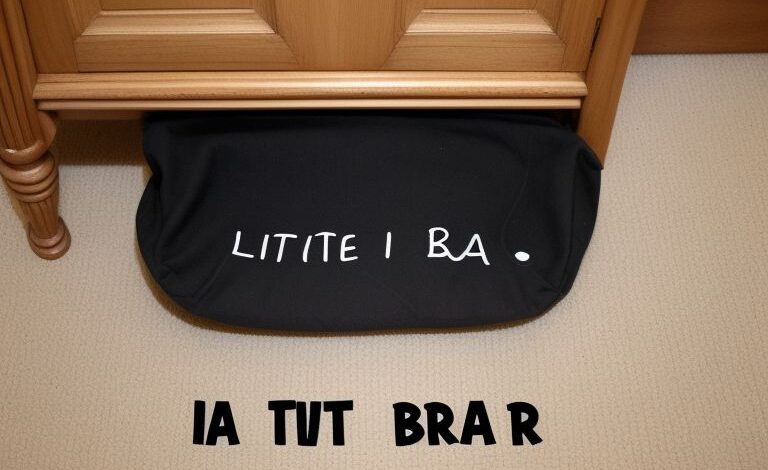Sassy Little Brat NYT: The Viral Phrase and What It Really Means

Sassy little brat NYT is a phrase that has caught the attention of many people online. Whether it came from a news article, social media, or a trending discussion, this term has sparked curiosity. People wonder what it means, where it started, and why it is gaining so much attention.
The phrase sassy little brat NYT can be seen in different contexts, sometimes as a playful remark and other times as a sharp criticism. But what makes it so popular? In this blog post, we will take a deep dive into its origins, meaning, and why it resonates with so many people today.
What’s Behind the Phrase?
Sassy little brat NYT is a phrase that has been making waves online. Some people use it as a playful joke, while others see it as an insult. But what does it really mean? And why has it caught so much attention?
The phrase sassy little brat NYT seems to describe someone who is bold, outspoken, and maybe even a little mischievous. It can be seen as both a compliment and a criticism. Some admire the confidence behind it, while others feel it carries a negative tone.
Many words and phrases go viral because they spark strong reactions. Some people enjoy using sassy little brat NYT to describe someone with attitude, while others dislike it. Understanding its meaning and history can help explain why this phrase has become so popular.
Why People Love and Hate the Term “Sassy Little Brat”
Words can have different meanings depending on how they are used. Some people love the phrase sassy little brat NYT because it sounds fun and full of energy. They see it as a way to describe someone with personality and charm.
Others, however, find it rude or unnecessary. They believe that calling someone a “brat” is not kind, even if it is meant in a playful way. The word “sassy” can be positive or negative, depending on the situation.
Every phrase carries its own weight, and how people react to it depends on their own experiences. Whether it is used as a compliment or an insult, sassy little brat NYT continues to grab attention and spark debate online.
The Origins of Sassy Little Brat NYT: Fact or Fiction?
Some viral phrases have clear origins, while others remain a mystery. The phrase sassy little brat NYT may have come from a news article, a social media post, or even a casual conversation that caught on.
Tracing the true beginning of a phrase can be tricky. Some claim it started as a playful joke, while others say it was used in a serious way. No matter where it came from, the phrase has now become a topic of discussion.
Understanding the origins of sassy little brat NYT helps us see why it became so popular. It also shows how quickly words can spread and take on different meanings in today’s fast-moving digital world.
Is Sassy Little Brat a Compliment or an Insult?
Some people think being called a “sassy little brat” is a fun way to describe someone with confidence. Others believe it is a rude label that should not be used. So, is it a good thing or a bad thing?
If someone uses sassy little brat NYT in a lighthearted way, it may just mean that the person is outspoken and full of energy. But if it is said in an angry tone, it could feel more like an insult.
Words carry power, and the way they are said matters. Whether sassy little brat NYT is positive or negative depends on how it is used and how the person hearing it feels about it.
How Social Media Turned “Sassy Little Brat” into a Trend
Many phrases become popular because of social media. People see something funny or interesting and start sharing it. Soon, it becomes a trend.
The phrase sassy little brat NYT may have gained attention this way. People use it in tweets, memes, and comments, making it more popular. When a phrase spreads fast, it can take on new meanings along the way.
Trends come and go, but some phrases stick around. Whether people love or hate sassy little brat NYT, social media has helped make it a well-known phrase in online conversations.
Famous Moments When People Were Called Sassy Little Brat
Throughout history, many people have been called “sassy” or “brats.” Some have embraced it, while others have tried to shake off the label.
Famous figures, celebrities, and even fictional characters have been described as sassy little brats. Their strong personalities and bold attitudes make them stand out. Some people love their confidence, while others see them as troublemakers.
Looking at examples of well-known “sassy little brats” can help us understand why the phrase is used so often. Whether in movies, books, or real life, there is always someone who fits the description.
What the NYT Article Might Have Meant by Sassy Little Brat
News articles sometimes use strong words to get attention. If sassy little brat NYT came from an article, the writer may have chosen those words carefully to make a point.
Writers often use phrases that spark emotions. A person being called sassy little brat NYT might have done something bold or unexpected. Understanding the full context can help us see what the article was really saying.
Words are powerful, and reading between the lines is important. If the phrase sassy little brat NYT came from an article, it is good to ask: Was it meant as a joke, a compliment, or something else?
Psychology Behind Being Called a Sassy Little Brat
People react differently to labels. Being called sassy little brat NYT can make some people laugh, while others might feel hurt. Understanding why words affect us is part of psychology.
Some people enjoy being seen as bold and full of personality. They see being “sassy” as a strength. Others, however, feel that words like “brat” are negative and should not be used.
How people react depends on their personality and experiences. Some embrace the label, while others prefer to avoid it. Words shape how we see ourselves and how others see us.
Why Some People Relate to the Sassy Little Brat Attitude
Many people enjoy having a bold and confident personality. They like standing out and making their voices heard. The phrase sassy little brat NYT might describe them well.
Being outspoken and full of energy is not always a bad thing. Some people admire those who have a strong personality. Others may feel it is too much. Everyone has different opinions on what is too “sassy.”
If someone connects with the phrase sassy little brat NYT, it might mean they enjoy being bold and fearless. But they may also want to be careful not to cross the line between confidence and rudeness.
Final Thoughts: Should You Embrace the Sassy Little Brat Label?
Being called sassy little brat NYT can mean different things to different people. Some see it as fun and empowering, while others find it negative. So, should you embrace it?
If you love being bold and confident, the phrase may not bother you. But if you prefer a softer image, you might not like being called that. Everyone reacts differently to labels.
Conclusion
The phrase sassy little brat NYT has sparked a lot of discussions, with some people loving its boldness and others finding it offensive. Whether it is meant as a compliment or an insult depends on how it is used and who hears it. Words have power, and they can carry different meanings for different people.
At the end of the day, what matters most is how we choose to react to labels. If being called a “sassy little brat” makes you feel strong and confident, then embrace it. But if it does not sit well with you, remember that words do not define who you are. Understanding their impact helps us communicate better and create more positive conversations online and offline.
FAQs:
Q: What does “sassy little brat NYT” mean?
A: The phrase “sassy little brat NYT” describes someone with a bold attitude, often playful or mischievous. It can be taken as a compliment or an insult, depending on the context.
Q: Where did the phrase “sassy little brat NYT” come from?
A: The exact origin is unclear, but it may have come from a news article, social media, or pop culture references. Viral phrases often spread quickly online.
Q: Is “sassy little brat NYT” a positive or negative phrase?
A: It depends on how it is used. Some people see it as fun and confident, while others think it sounds rude or disrespectful.
Q: Why has “sassy little brat NYT” become popular?
A: Social media trends and online discussions help phrases like this gain attention. People use it in jokes, memes, and comments.
Q: Can being called a “sassy little brat” be a good thing?
A: Yes, if taken playfully, it can mean someone is strong-willed and confident. However, some may not like being called a “brat.”
Q: Should I use the phrase “sassy little brat NYT” in conversation?
A: Use it carefully. Some might find it funny, while others may find it offensive. Continuously consider what is going on and the individual you are addressing.
Read more: myolsd





